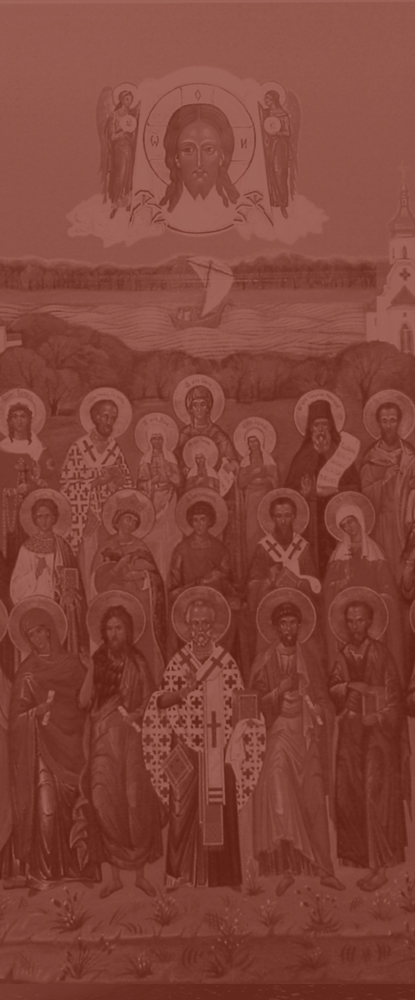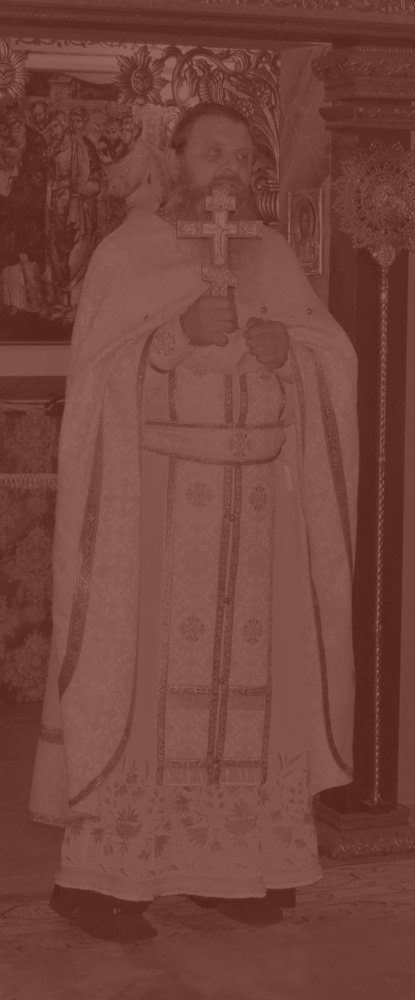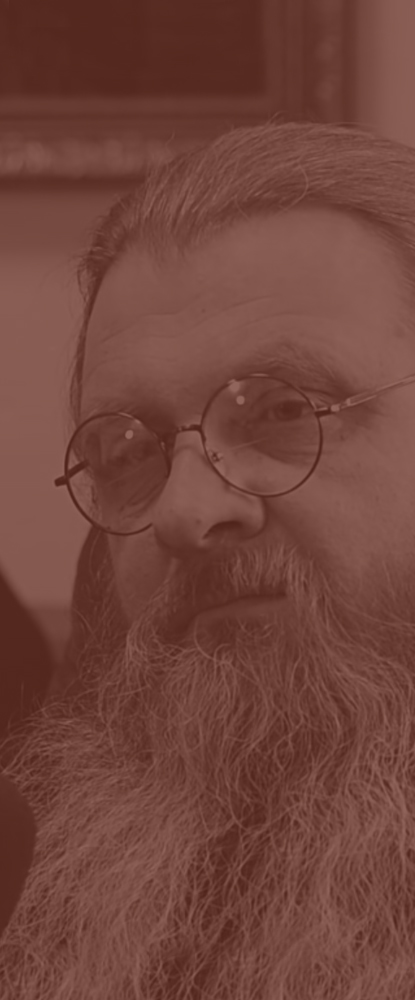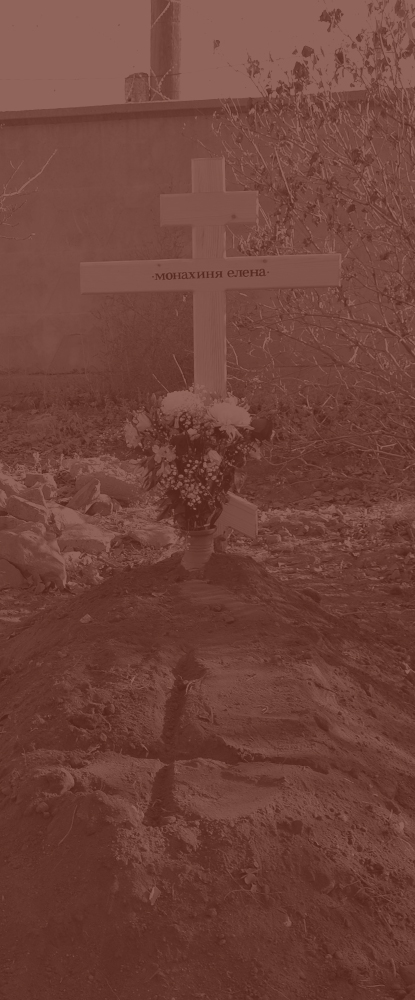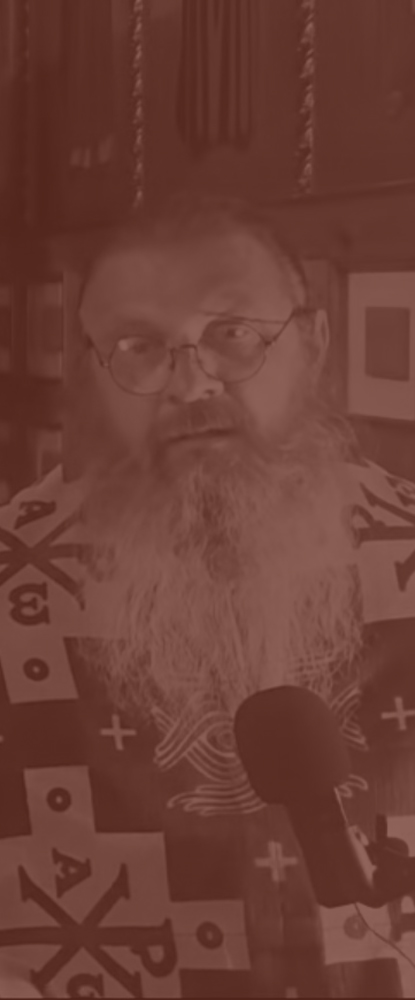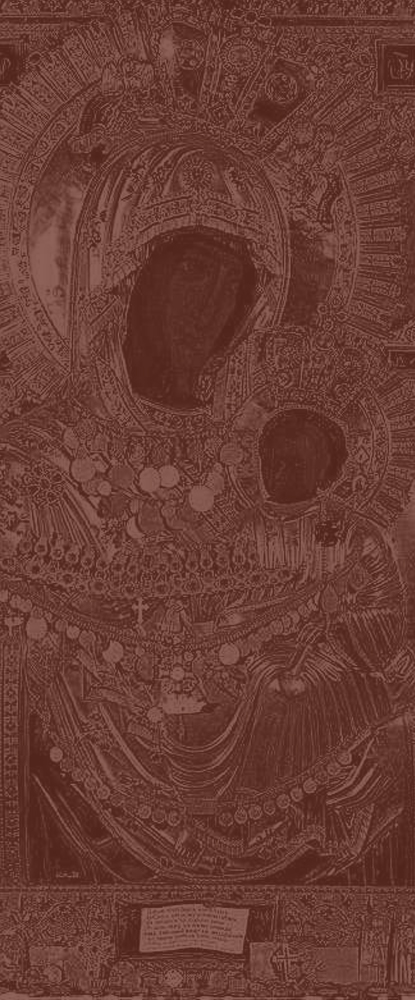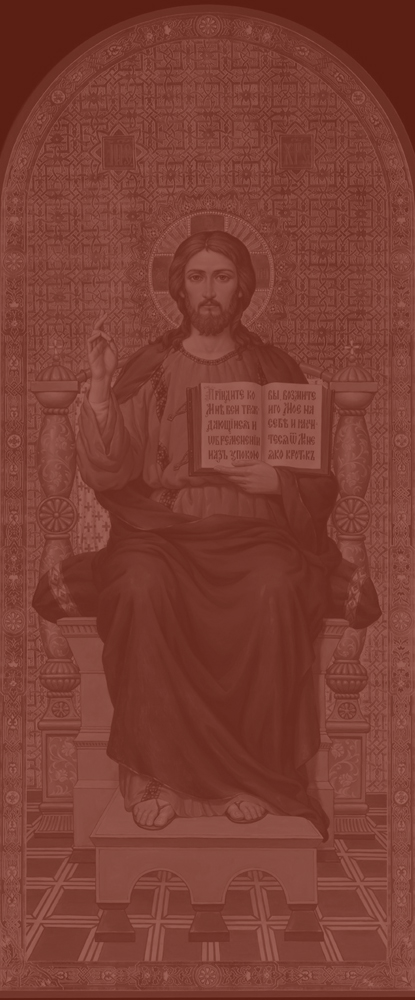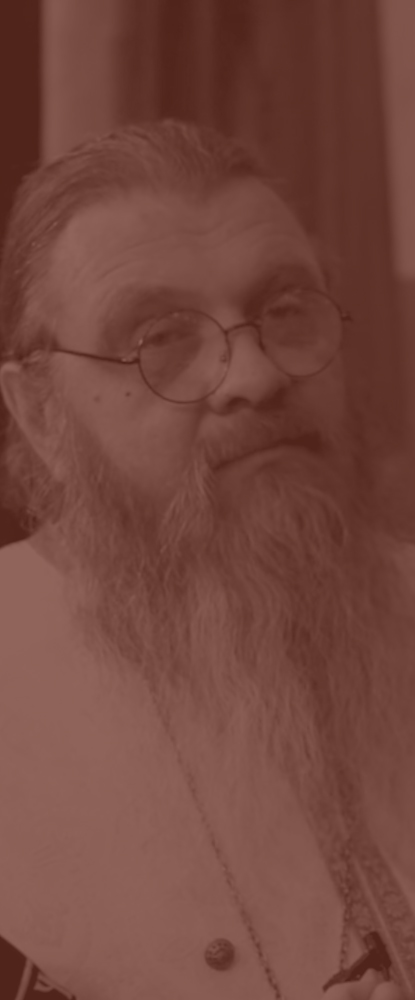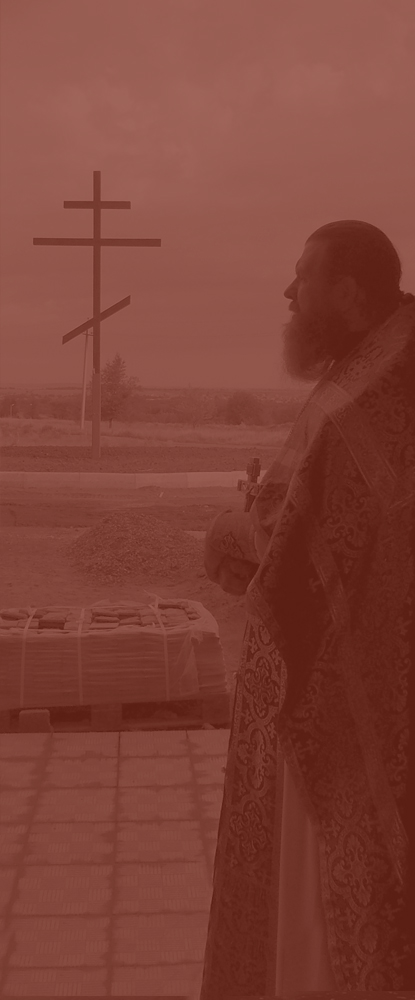RUN TO CHRIST
Tonight I would like to refer to a historical moment when humankind was damaged for the first time, to refer to Adam and Eve and their Fall, after which all humankind was damaged. And due to this, suffering, sorrow, and death filled its whole nature. What happened to Adam and Eve then? I’m not going to describe the Fall; it’s already known all over. I’d like to draw your attention to the issue: why wasn’t this conflict settled at once and the wound healed? What happened to them? What were they about right after the Fall? They hid. They didn’t come out to meet the One whom they hurt, offended, betrayed, but they went the opposite way. God walked around Eden searching for them and asking: “Where are you, Adam? Where are you, Eve? I can’t see you.” But they decided to hide, to walk further away. That was the problem.
In contradiction to the above, I’d like to remind you of an absolutely different case describing a man who committed a grave sin. He betrayed in a very ugly and pitiful manner. But his move after he’d sinned, was absolutely opposite. He didn’t run, but moved towards the One who should have burned him with shame, punished and turned away from him. However, in spite of everything, he moved towards, not away from Him. Thus, I remind you about the fall of St. Peter and the moment in the New Testament when after the crucifixion and resurrection of Christ, His disciples found themselves alone, lost, disappointed, anxious. But they were still humans. They needed to take food. And so, St. Peter said he was going fishing and the rest of the disciples decided to go with him. They were fishing when all of a sudden, Christ appeared on the shore. They didn’t see Him clearly, only the shape of a man on the shore, and this Man asked them from the shore, “Have you caught anything?” And St. John, as the closest disciple, not with his eyes, but with his heart saw Who it was and said: “It’s Our Master, it is Christ on the shore.” And St. Peter, without getting dressed, without tying up, jumped into the water and swam. He couldn’t wait before the boats came to the shore. That is why he swam towards the One who should have burned him just by being there, by the recollection of betrayal that had happened only three days before when he denounced Him thrice. But St. Peter acted in spite of everything.
What is the fundamental difference between the states of Adam and Eve and St. Peter? And what’s wrong with our repentance? It’s wrong when we, after having sinned, after getting dirty once again, look ugly and pitiful, and even feel shame to look up at an icon, when we start to keep distance between us and God. We think: “I’m nobody. I’ll stand aside. I won’t approach the icon. I’m not worth it.” It’s wrong when we come to confession and feel shame to confess our sins. This “repentance” is of evil. The sort of repentance that makes us move away from the One whom we should ask to forgive us and make peace with Him right away. St. Peter can’t wait; he is ready to explode; he needs to make peace right away, drop to his knees and kiss His feet. And yes, he realizes his nothingness, but he doesn’t want to remain like this, he wants to change it. You see, the most important mistake is when it seems to us that we practice repentance. When we admit our sin and highly recognize and feel sorry for our nothingness, we take it for repentance – when we presume we can do it on our own and hide from Christ. But it is impossible to repent on one’s own. Our repentance is Christ. It doesn’t matter how deeply you feel sorry for your sin, how disgusted you feel about it, how you want to get rid of it and change, you can’t do it on your own. All you need is to follow Christ in spite of your shame, your nothingness. Here and now, stand before Him, not hiding from Him, as if considering yourself unworthy. The most important thing is that He accepts us, doesn’t push us out or turn away from us as an offended person. He accepts everyone. We just don’t need to hide, to avoid Him, but come back at once. Yes, it is shameful, it is hard, it hurts so much and burns you from inside, but you can’t cope with it on your own. He is your salvation, He is your repentance, He is your reformation. It’s not enough just to admit your sin, you need to change yourself, but you can’t do it on your own, without Him.
At that instant, we run to Christ: Jesus, Jesus, Jesus. Yes, I’m nobody, just like that lost woman who knelt and washed His feet with her tears and wiped them with her hair. She realized she was not worthy to sit down at the table among them, but at the same time, she didn’t hide from Him. She approached Him, though burned with shame, though she expected someone who knew her to give her away, and that was exactly what happened. “How can He let this lost woman come to Him? Her shameful and dirty life is well known to us.” Against all odds, she doesn’t run away from Him, doesn’t hide, but comes to meet Him. That is repentance.
Please note. No one can confess and change on one’s own. We can only admit our sins. It’s good to cry over sins, but also we need to change, which is not possible without Christ. That is the reason why, no matter how it hurts and how shameful it is, we should move towards Him, not in the opposite direction. Moreover, the more ugly we look today, the faster we need to run to Him. Lord Jesus Christ, have mercy on me.
Надежда Р. +79504843372
Бегите ко Христу.
Я хочу сегодня вас направить в историческое место самого первого повреждения человечества, к Адаму и к Еве, когда они совершили грехопадение, после чего произошло повреждение всего человечества. И в связи с этим, страдание, скорбь, смерть вошли и во всю природу . Что тогда произошло с Адамом и Евой? Я не буду говорить о грехопадении, это у нас у всех на слуху, а хочу сейчас обратить ваше внимание: почему сразу не уврачевался этот конфликт и эта рана? Что с ними происходит, как они действуют дальше, сразу после грехопадения? Они прячутся. Они движутся не на встречу Тому, Кого оскорбили, обидели, предали, а от Него. Господь ходит в раю, ищет их, говорит: Адам, где ты? Ева, где вы, Я вас не вижу. И их мотивация (вопрос к этому слову, скорее, не мотивация, а реакция, что ли. Подумай, предложи свой вариант,пож.) – спрятаться, уйти дальше. В этом была вся проблема. В противоречие этой ситуации, я хотел бы, сегодня, напомнить совершенно другое действие человека, который тоже очень сильно согрешил. Согрешил предательством, некрасиво, ничтожно, но его мотивация (действие?) сразу после греха была, наоборот. Он не бежал, а двигался навстречу Тому, Который, казалось бы, должен сжечь его стыдом, наказать, отвернуться от него. Но он, наперекор всему, двигался не от, а вперед. Я хочу напомнить о грехопадении Петра, и этот момент в Евангелии, когда, после распятия, после воскресенья Христа, ученики одни, в недоумении, в разочаровании, в тревоге. Но они всё равно, люди, они должны принимать пищу. И Петр говорит, иду рыбу ловить, и другие ученики говорят, и мы с тобой. И, вот, когда они ловят рыбу, вдруг на берегу появляется Христос. Они Его ещё не различают, только видят Его фигуру на берегу, и Эта Личность с берега говорит им: Вы что-то поймали? И апостолу Иоанну, как самому близкому ученику, не глаза, а сердце подсказывает, и он вдруг говорит: Это Учитель, это Христос на берегу. И Петр, даже не одевшись, не подвязавшись, сразу бросается в воду и плывёт. Он не может ждать, пока доплывут лодки, поэтому плывёт навстречу Тому, который, казалось, должен его сейчас испепелить, просто своим бытием, воспоминанием: Ты предал Его три дня назад, ты отрёкся от Него, публично три раза. Но Апостол Петр совершает это действие наперекор, казалось бы, всему. В чем кардинальная, разница состояний Адама и Евы и апостола Петра? И в чем неправильность, как часто бывает, нашего покаяния? Когда мы, согрешивши, испачкавшись в очередной раз, выглядим очень некрасиво, ничтожно, уродливо, когда мы стесняемся поднять глаза на икону, когда мы начинаем держать дистанцию между нами и Богом: Я ничтожество, я буду в стороне, я даже не подойду к иконе, я недостоин. Когда мы стесняемся подойти на исповедь и покаяться в своих грехах. Это «покаяние» в кавычках, это покаяние от лукавого. Покаяние, которое движет нас не в сторону Того, у Кого мы должны попросить прощения и тут же с Ним примириться, вот, прямо, сию минуту. Апостол Петр не может ждать, у него всё внутри горит, ему нужно тут же примириться, тут же упасть в ноги, облобызать их. Да, он ничтожество, но он не хочет таки оставаться, а он хочет что-то изменить. Знаете, самая главная наша ошибка – это когда нам кажется, что мы занимаемся покаянием, кажется, что признание своего греха и сугубое переживание своего ничтожества – это уже покаяние, что мы можем что-то сделать сами – и прячемся от Христа. Но никто не может произвести покаяние сам. Наше покаяние – это Христос. Как бы вы глубоко ни переживали, ни признавали свой грех, как бы отвратителен он вам ни был, как бы ни хотели вы от него избавиться и измениться, вы не сможете. Нужно наперекор стыду, своему сраму, своему ничтожеству, следовать в сторону Христа. Тут же, сию минуту, не прятаться от него, якобы, я даже не достоин приблизиться. И самое главное, что Он это принимает, Он не отпихивает нас коленом, не отворачивается от нас, обиженной персоной. Любого принимает, только не прячься, не удаляйся, а сразу возвращайся. Да, это стыдно, да, это очень больно, это жжет тебя изнутри, но ты сам не справишься, Он твоё спасение, Он твоё покаяние, Он твоё изменение. Просто признать свой грех, это ничто, нужно изменить себя, а изменить без Него ты не сможешь ничего. Тут же бежим ко Христу: Иисусе, Иисусе, Иисусе. Да, я ничтожество, как та блудница, которая встала на колени и слезами омывала Его ноги и власами своими отирала. Она не считала себя достойной сесть рядом со всеми за стол, но в то же время, она не пряталась от Него. Она приближалась, хотя её жег стыд, хотя она понимала, что сейчас, вот, кто-то из знакомых воскликнет, и так оно и было: Как Он может приблизить к себе эту ничтожную женщину? Мы же все знаем её жизнь, её срам, её грязь, и она наперекор этому не бежит от него, не прячется, а идёт, навстречу.” Вот в этом покаяние.
Запомните, пожалуйста. Никто из нас не сможет принести покаяние, как изменение. как признание греха – да. Как плач о грехе – да, но нужно принести изменение, и Без Христа это невозможно. И, поэтому, как бы больно и стыдно не было, мы должны идти не от Него а к Нему. И чем хуже мы сегодня выглядим, тем быстрее мы должны бежать в Его сторону. Господи, Иисусе Христе, помилуй мя.
